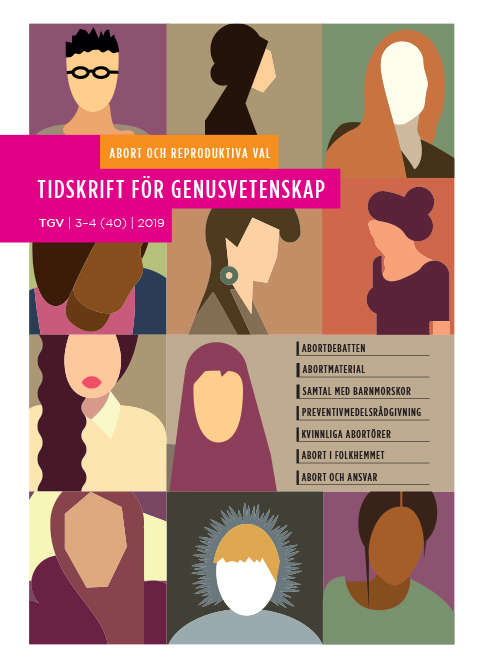Heder och vanära i folkhemmet
Reproduktiva val och abortskildringar i svensk 1940- och 50-talslitteratur
DOI:
https://doi.org/10.55870/tgv.v40i3-4.2641Nyckelord:
abort, litterär gestaltning, reproduktion, moderskap, nationell gemenskap, folkhem, vanäraAbstract
In a time when patriarchal culture became entrenched in Sweden’s national project through laws, reforms and norms, abortion was a common issue for female writers. This article examines how women’s reproductive choices are depicted in Swedish fiction – written by under-researched working-class and middle-class women writers – published in the 1940s and 1950s. I examine the ways in which these texts either challenge or reproduce the legal and social norms of the time concerning reproduction and abortion, as well as their depictions of gender and class differences pertaining to reproductive choices. I also touch upon the reception of literary depictions of abortion. I build on research that deals with the role of the nation in the construction of gender, and the importance of motherhood to national identity. My analyses show that abortions and reproductive choices should be regarded as closely related to the nation and its role in the construction of gender and power relations, where men’s power to honor or dishonor women(’s bodies) is central.
Nedladdningar
Downloads
Publicerad
Referera så här
Nummer
Sektion
Licens
Copyright (c) 2019 Therese Hellberg

Detta verk är licensierat under en Creative Commons Erkännande-IckeKommersiell 4.0 Internationell-licens.
Författaren/författarna behåller copyright till verket.





